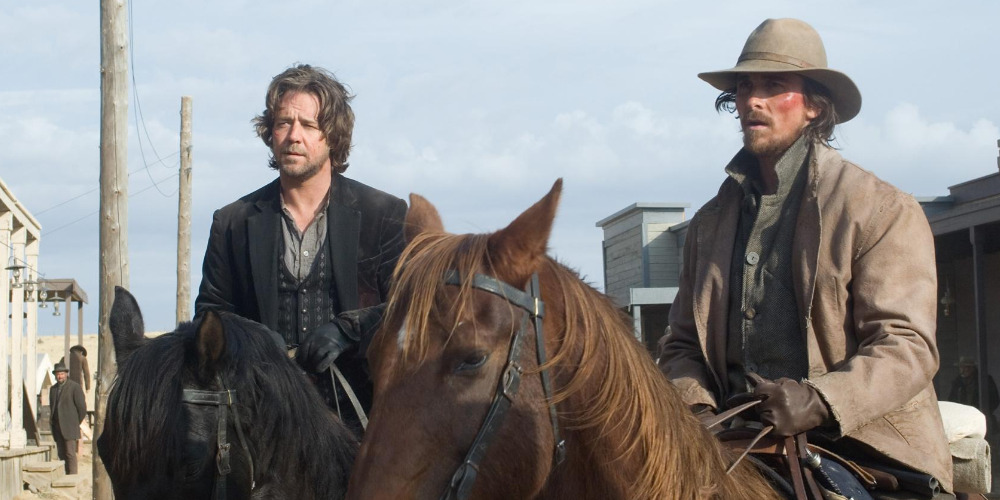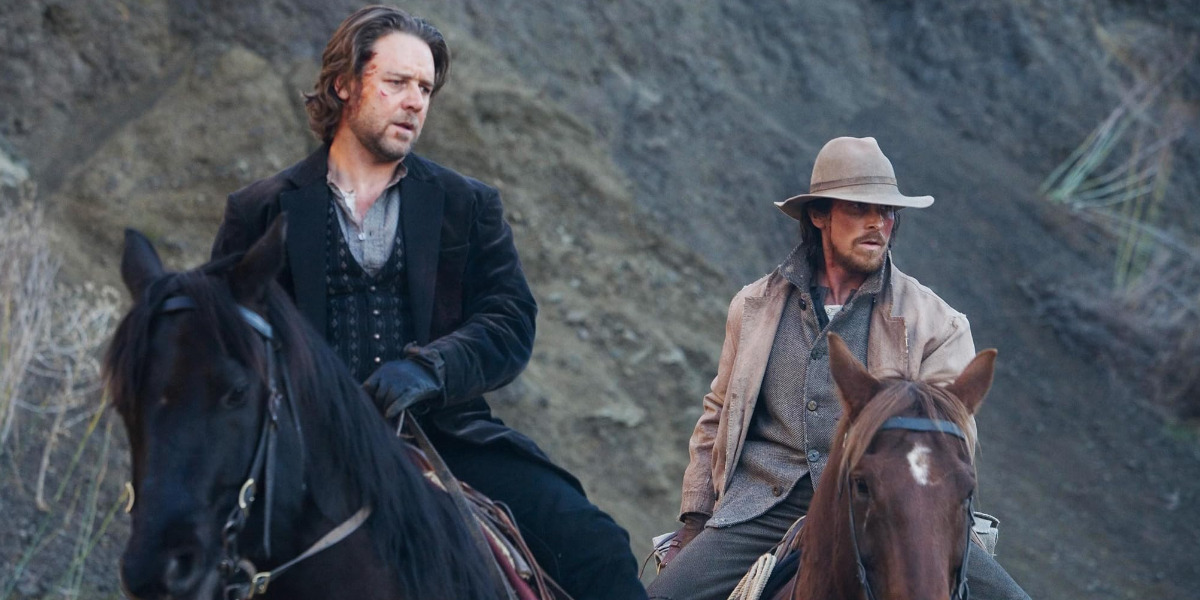Following the story of two men on an unlikely journey of mutual understanding and respect, ‘3:10 to Yuma’ is a 2007 Western film directed by James Mangold. Dan Evans, a struggling war veteran rancher, finds the opportunity to save his family’s ranch when high-profile outlaw Ben Wade gets caught in the middle of nowhere town of Bisbee. Joining the posse tasked with Wade’s imprisonment, Dan travels to a 3:10 Train to Yuma Prison in Contention. Along the way, the group faces many challenges and tries to survive the journey while Ben tries to win his freedom.
This film depicts an incredibly compelling tale of two men from different sides of the world who somehow meet at an intersection of trust and respect. Featuring Christian Bale and Russell Crowe, ‘3:10 to Yuma’ explores humane themes of morality and ethics through Dan and Ben’s characters that reflect a moral quandary often found in reality. However, how much reality is behind these characters? Let’s find out!
Ben Wade and Dan Evans Are Fictional
Ben Wade and Dan Evans are not based on real people. Instead, both characters have a basis in previous renditions of their stories, as told by Delmer Daves in his 1957 film and Elmore Leonard in his 1953 short story. Nevertheless, in Mangold’s iteration of the story, he brings his own set of nuances and qualities to Ben and Dan’s characters.

In Leonard’s short story, ‘Three-Ten to Yuma,’ a much different narrative than its future counterparts, Ben and Dan are actually Jimmy Kidd and Deputy Marshal Paul Scallen. Regardless of the distinction, the story delves into Kidd and, Scallen’s motives and acts as an exploration of these specific characters in the same fashion as Mangold’s film does.
Inversely Crowe and Bale’s characters though more noticeably based on Daves’s eponymously named Ben and Dan, still come with differences and quirks that make them more relatable to the contemporary audience. For instance, Bale’s character, Dan Evans, is a Civil War veteran with one leg, a new addition to the story. By infusing Dan’s character with this rich backstory, Mangold and his team of writers forge a connection between Dan and the country’s 2007’s socio-political climate without confining his voice with any broad political statements.
Likewise, on a more universal level, Dan’s story as a father looking to earn the respect and love of his family by staying true to his morals and his word also gives way to a more empathetic character. In fact, both Dan and Ben are made better due to their steel-hardened principles and authentic interactions with their truths and how it shapes their worldviews.
The same, of course, was an intentional tool employed by Director Mangold. “I don’t think anyone could say they identify with Ben Wade, or else they’re living a very rich fantasy life or are doing time. But the fact is that we all do identify with the ease, charm, and grace of Wade, who eliminates what he doesn’t like from the world and embraces what he does like,” he said in a conversation with Cineaste about his characters. “We also identify with the hesitancy and thwarting of what modern life, and family life, can be, and earning and holding the respect of your wife and children, and how hard that can be in a world filled with compromise and power greater than your own, which is what Christian [Bale’s] character is about.”
It’s also important to note that, like Dan, Ben’s story is also significantly colored by his relationship to fatherhood. Though not a father himself, Ben has a complicated perception of fatherhood, given his own father’s absence from his childhood. Consequently, Dan’s role as a caring parent vastly informs Ben’s actions and decisions toward the film’s end. A lot of people can relate to these experiences that shape Ben and Dan’s characters.
Due to the same, both characters find their authenticity, not only from their personal philosophies but from their relationships with other characters— and above all, each other. As such, even though these characters aren’t based on real people, they reflect real emotions and situations in an admirably authentic way.
Read More: 3:10 to Yuma Ending Explained: Why Does Ben Help Dan?


You must be logged in to post a comment.